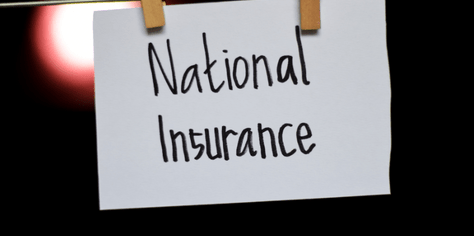In short, yes. Unfortunately, NI is another tax that you’ll have to pay as a sole trader. As a sole trader, it is a legal requirement for you to pay National Insurance contributions if your sole trader profits are above the threshold set by HMRC for the tax year in question.
Prior to the 6th of April 2024, sole traders had to make class 2 & class 4 national insurance payments if they were over the threshold for each type. The government decided that no one would have to make class 2 national insurance payments from this date. Therefore, currently sole traders only have to make class 4 national insurance payments.
Self-employed individuals with profits between the £6,725 Small Profits Threshold and the £12,570 Lower Profits Limit will not be affected by the Autumn Statement 2023 announcement – they will continue to benefit from a National Insurance Credit after 6 April 2024 without having to pay Class 2 NICs, as they do now.
Self-employed individuals with profits below £6,725 will also see no changes after 6 April 2024 – they will continue to have the option of paying voluntary Class 2 NICs in order to build their entitlement to the State pension and other contributory benefits. So Class 2 has not been scrapped for this group. Individuals with profits below £6,725, can opt to pay £3.45 per week (so £179.40 for the year; £3.45 x 52 weeks) so they get a year’s worth of contributions for their state pension.
So how much do I have to pay?
For the tax year 24/25 (which runs from 6/4/24 to 5/4/25), you’ll have to pay class 4 national insurance at:
· 6% on profits between £12,570 & £50,270
· 2% on profits above £50,270.
· You don’t have to pay any national insurance if you self-employment profits are below £12,570.
As it says above, if your profits are below £6,725, then you can voluntarily make NI payments. This is handy if you want the year to count towards your state pension years. If your profits are between £6,725 & £12,570, then you'll get the contributing year towards your state pension without having to pay any NI.
So when / how do I pay National insurance?
If you don’t have to make payments on account, then you have to pay all you NI amount due by the 31st of January, following the year end. If you have to make payments on account, then your NI amount will form part of your payments.
Don’t know what ‘Payment on accounts' are?- read my blog post on them here: 'What are payments on account & how do they work?'

